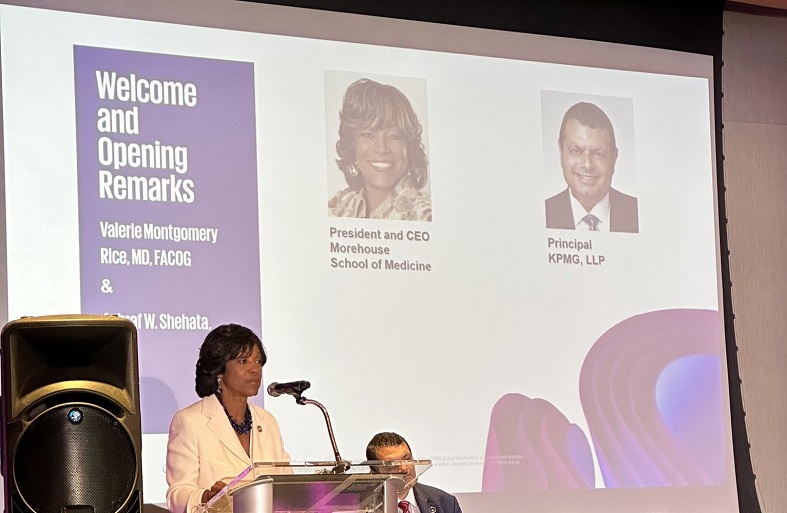Health Experts, Leaders Discuss Health Disparities in Atlanta
The Dr. David Satcher Global Health Equity Summit brought together experts from around
the world
to brainstorm, collaborate, and look at solutions to achieve health equity.
By Steve Gehlbach, WSB-TV
ATLANTA — Health experts and leaders met in downtown Atlanta on September 14 to help solve the problem of health equity, in Atlanta and around the world.
The Dr. David Satcher Global Health Equity Summit at the National Center for Civil and Human Rights was cohosted by Morehouse School of Medicine and KPMG.
Dr. Satcher, a former US surgeon general and head of the Centers for Disease Control and Prevention, gave remarks to start the summit.
“A day in which I believe we will in fact achieve greatness,” Dr. Satcher said.
This first inaugural event brought together experts from around the world and leaders like Ambassador Andrew Young, holding discussions to brainstorm, collaborate, and look at solutions to achieve health equity.
President and CEO of Morehouse School of Medicine Dr. Valerie Montgomery Rice says it’s a global issue and they want to build on momentum gains, and the lessons learned through the pandemic.
“…To create and continue the conversation about how to support low-income and low-resource countries and understanding that they have to be self-empowered to change their circumstances. We learned that from COVID-19,” Dr. Montgomery Rice explained.
But health equity also includes local issues like the closures last year of two hospitals in South Fulton and Atlanta Medical Center, limiting access and impacting predominately Black and lower-income communities.
Dr. Montgomery Rice says it emphasizes the need for communication and planning.
“We didn’t have enough time to do that, to ensure that there were no unintended consequences,” Dr. Montgomery Rice said.
Thursday’s all-day summit also helped Morehouse School of Medicine students and researchers further their young careers with exposure on a global scale.
“You got to listen to what they perceive their challenges to be and then ask, ‘How can I help?’” Dr. Montgomery Rice said.


